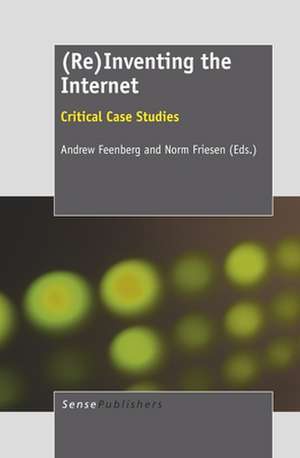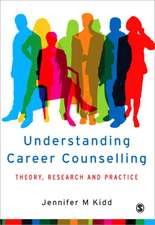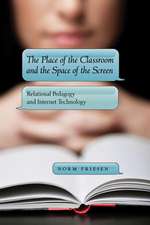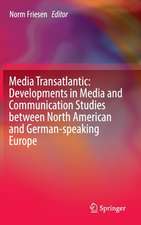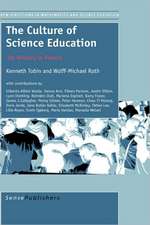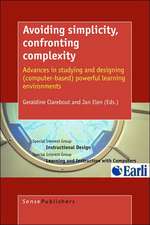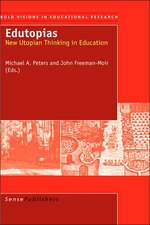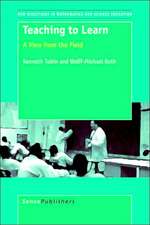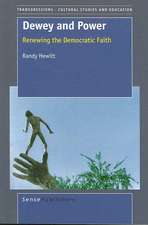(Re)Inventing the Internet: Critical Case Studies
Andrew Feenberg, Norm Friesenen Limba Engleză Paperback – 31 dec 2011
Its governance and role in civic life, education, and entertainment are all still openly disputed and debated. The issues include censorship and network control, privacy and surveillance, the political impact of activist blogging, peer to peer file sharing, the effects of video games on children, and many others. Media conglomerates, governments and users all contribute to shaping the forms and functions of the Internet as the limits and potentialities of the technologies are tested and extended. What is most surprising about the Internet is the proliferation of controversies and conflicts in which the creativity of ordinary users plays a central role.
The title, (Re)Inventing the Internet, refers to this extraordinary flowering of agency in a society that tends to reduce its members to passive spectators.
This collection presents a series of critical case studies that examine specific sites of change and contestation. These cover a range of phenomena including computer gaming cultures, online education, surveillance, and the mutual shaping of digital technologies and civic life.
Preț: 163.13 lei
Nou
Puncte Express: 245
Preț estimativ în valută:
31.22€ • 32.67$ • 25.98£
31.22€ • 32.67$ • 25.98£
Carte tipărită la comandă
Livrare economică 27 martie-02 aprilie
Preluare comenzi: 021 569.72.76
Specificații
ISBN-13: 9789460917325
ISBN-10: 9460917321
Pagini: 146
Dimensiuni: 156 x 234 x 8 mm
Greutate: 0.24 kg
Ediția:New.
Editura: Brill
Colecția Brill
ISBN-10: 9460917321
Pagini: 146
Dimensiuni: 156 x 234 x 8 mm
Greutate: 0.24 kg
Ediția:New.
Editura: Brill
Colecția Brill
Recenzii
“This volume offers theoretical insights that are applied to concrete case studies … the chapters in this book use these case studies to inform theories. Articulation of agencies in relation to technologies is evident throughout the book. This edited volume can be a valuable resource for graduate courses in communication, information science, culture studies, political science, and sociology.” —New Media and Society
“Freenberg’s introduction has a revealing subtitle: ‘Toward a critical theory of the Internet’. This slim book actually does contribute a great deal towards laying the foundations for a useful and critical theory of interlinked digital media … This book is good scholarship, and therefor good politics. It is not just for understanding the world, it is aimed at helping to shape the future.” —Science as Culture
“Freenberg’s introduction has a revealing subtitle: ‘Toward a critical theory of the Internet’. This slim book actually does contribute a great deal towards laying the foundations for a useful and critical theory of interlinked digital media … This book is good scholarship, and therefor good politics. It is not just for understanding the world, it is aimed at helping to shape the future.” —Science as Culture
